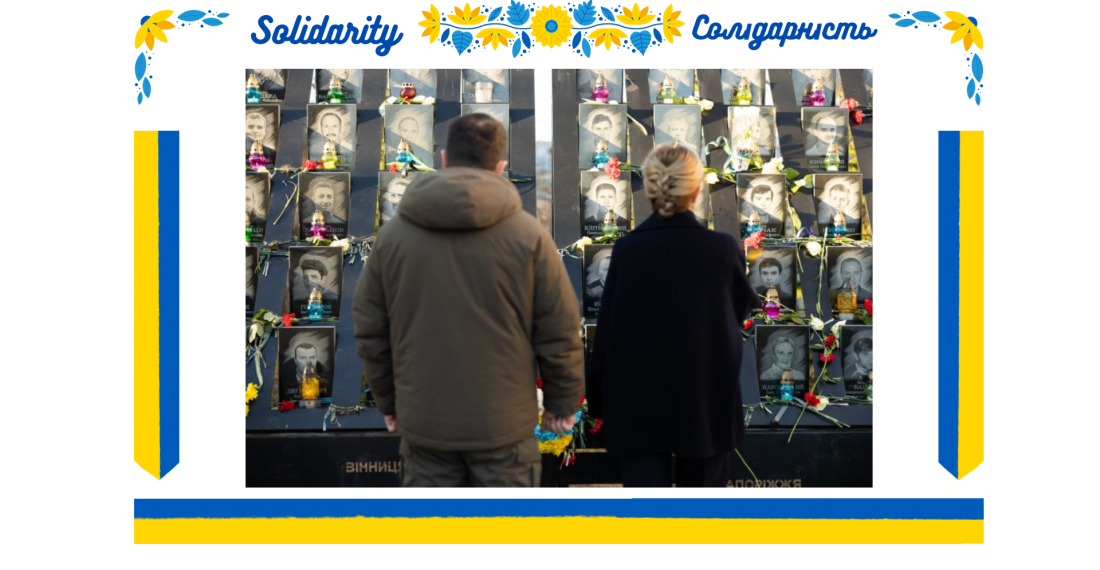This week marks the first anniversary of the Russian invasion of Ukraine. commonspace.eu will mark this week as one of solidarity with Ukraine and its people, and is running a number of articles and news items related to the conflict and its impact on the rest of Europe and the world.
Today, on Monday (20 February), Ukraine is marking the Day of Heroes of the Heavenly Hundred in commemoration of those who died during the 2013-14 Euromaidan protests, also known as the Revolution of Dignity.
It has been marked annually on 20 February following a Presidential Decree signed by then-Ukrainian President on 11 February 2015, "On commemorating the feat of the participants in the Revolution of Dignity and perpetuating the memory of the Heroes of the Heavenly Hundred."
"The Heavenly Hundred" refers to the 108 people who died during the Euromaidan protests nine years ago. This includes 105 Ukrainians and three foreigners, one from Belarus and two from Georgia.
It was between 18-20 February 2014 that the Revolution was at its most violent, during which time 78 protesters were killed on Independence Square in Kyiv. After 20 February, over 20 protesters died of their injuries.
President Volodymyr Zelensky and First Lady Olena Zelenska visit memorial in Kyiv
The day began with a short address from Ukrainian President Volodymyr Zelensky. He said:
"The time comes when the voices of millions merge into a single voice of the people, saying that Ukrainians want and will live only in a free state. In their own Ukraine. Which will certainly survive. And which will certainly preserve freedom.
"Today we honor the heroes who gave their lives for Ukraine and Ukrainians during the Revolution of Dignity. The Heroes of the Heavenly Hundred. People of different ages and professions, from different regions, but with the same and true values."
He continued:
"Nine years after the Revolution of Dignity, the battle for our independence continues. For an independent, free and powerful Ukraine, European and democratic, independent and united. And there is no doubt that we will protect all this, that we will make the dream of Ukrainian heroes come true."
Following the address, the President and First Lady of Ukraine visited the memorial to the Heavenly Hundred to pay their respects to those who died during the Revolution of Dignity.
Nine years since the annexation of Crimea
20 February 2023 also marks exactly nine years since the Russian annexation of Crimea, which marked the beginning of the ongoing Russia-Ukraine war.
This week also marks the first anniversary of the full-scale Russian invasion of Ukraine, which began on 24 February 2022.







